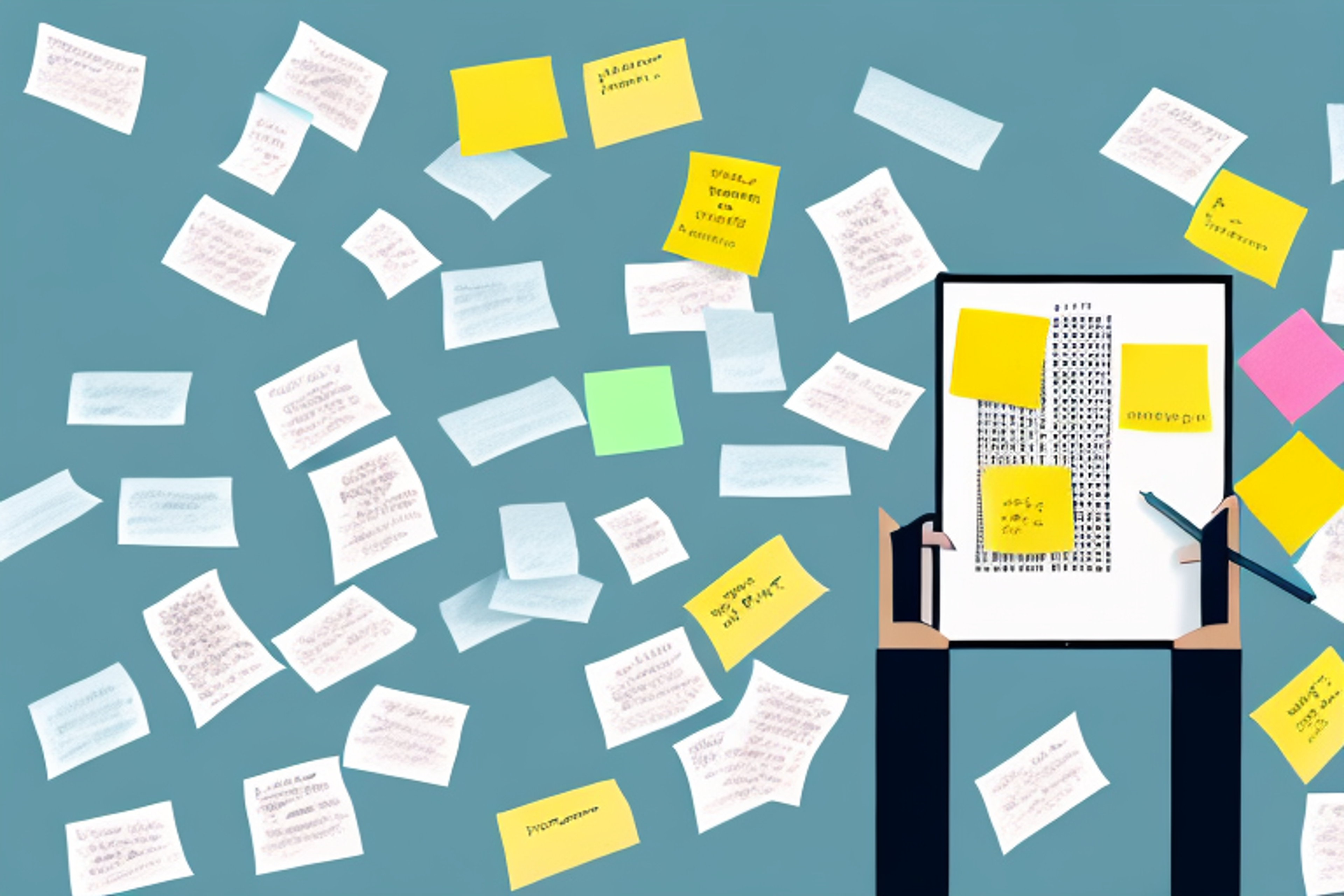Mastering the Interview: Top 30 Questions Asked in Investment Bank Interviews
Are you preparing for an investment bank interview? Look no further! Our article covers the top 30 questions asked in investment bank interviews and provides expert tips on how to answer them.
Posted June 13, 2025

Table of Contents
An interview for an investment banking position can be a nerve-wracking experience, even for the most seasoned professionals. Preparing in advance can help you feel confident and increase your chances of getting hired. One of the most important ways to prepare is by knowing the questions that are likely to be asked. In this article, we will go through the top 30 questions regularly asked during investment banking interviews and provide you with tips and tricks on how to answer them effectively.
What to expect in an Investment Bank Interview: Understanding the Process
Before we delve into the questions, it's essential to understand the interview process for investment banking positions. Typically, the interview process consists of several rounds, with each round getting progressively more challenging. The initial round may involve a phone or video interview with an HR representative, while the final round may consist of several interviews with the firm's senior executives, including the CEO. Throughout these rounds, you may be asked a combination of behavioral, technical, and industry-related questions. It's essential to stay calm, focused, and professional throughout the entire process, even if the questions are challenging.
How to Prepare for an Investment Bank Interview: Tips and Tricks
Now let's move on to the nitty-gritty of preparing for an interview. First things first, research the company and the industry it belongs to thoroughly. Make sure you have a good understanding of the firm's values, products, and recent deals. Also, prepare thoroughly for technical questions, which might involve valuation techniques, financial modeling, and accounting principles. It's also essential to master the STAR method, which stands for situation, task, action, and result. This technique can help you structure your answers effectively and ensure your responses are concise and compelling.
Common Mistakes to Avoid During an Investment Bank Interview
Don't fall into common traps that can cost you the job. Avoid giving generic answers that don't demonstrate your knowledge, skills, and experience. Also, don't get too comfortable during the interview, and don't be too casual with the interviewer. Finally, don't speak negatively about your previous employer, as it may indicate a lack of professionalism.
Importance of Researching the Company and Industry Before the Interview
As mentioned earlier, researching the company is an essential part of preparation. During the interview, you may be asked questions such as "What do you know about our firm?" or "Why do you want to work for us?" Having a good understanding of the company, its values, and its recent deals will ensure that your answers demonstrate your interest and enthusiasm for the position.
Dressing for Success: Appropriate Attire for an Investment Bank Interview
As the saying goes, "dress for the job you want." In investment banking, it's essential to dress in business professional attire, which may involve wearing a suit and tie for men and a professional dress or suit for women. Dressing professionally signals to the interviewer that you take the position seriously and are professional in your approach to work.
Navigating Behavioral Questions: Examples and Best Practices
During an interview, you may be asked behavioral questions, which aim to uncover your personality, values, and soft skills. Some common behavioral questions might include "Can you describe a time you went above and beyond for a customer?" or "Can you discuss a time when you had to solve a complex problem under pressure?" Answer these questions by using the STAR method, which can help you structure your responses and emphasize your achievements.
Technical Questions: What to Expect and How to Prepare
Investment banking is a highly technical field, and interviewers will expect candidates to have an in-depth understanding of valuation, financial modeling, accounting, and other technical skills. You may be asked questions such as "Can you explain the difference between a long and short position?" or "Can you discuss the different types of valuation methods?" Prepare for these questions by reviewing technical concepts and principles, and brushing up on the latest industry news.
The STAR Method: Telling Your Story Effectively During the Interview
The STAR method can be an effective way to answer any type of question during the interview. First, describe the situation you faced, then explain the task you had to accomplish. Next, describe the action you took, and finally, explain the results you achieved. This method can help you structure your answers effectively and demonstrate your problem-solving skills and achievements to the interviewer.
Tips for Answering Difficult Questions with Confidence
Many investment banking interviews will involve difficult questions aimed at testing your critical thinking and problem-solving abilities. It's essential to remain calm and confident when answering these questions. Focus on the facts, demonstrate your problem-solving skills, and be honest about any gaps in your knowledge. Remember that interviewers are looking for candidates who can think on their feet and remain calm under pressure.
Demonstrating Your Knowledge of Financial Markets and Products
As an investment banker, it's essential to have a solid understanding of financial markets and products. During the interview, you may be asked about recent market trends or the firm's current product offerings. Be sure to stay up to date on the latest news, trends, and developments in the industry to ensure that your answers are knowledgeable and informed.
Highlighting Your Transferable Skills and Relevant Experience
Interviewers are looking for candidates who have relevant experience and transferable skills that can be applied to the investment banking role. Highlight your experience in finance, accounting, or other related fields, and emphasize your achievements in previous roles. Also, be sure to mention any leadership or teamwork experiences you may have had, as these skills are highly valued in investment banking.
Articulating your Career Goals and Motivations for Working in Investment Banking
Investment banking is a highly competitive field, and interviewers are looking for candidates who are passionate about the work and have a clear understanding of their career goals. During the interview, be sure to articulate your motivations for working in investment banking and your long-term career goals. Be specific and demonstrate a deep understanding of the industry and the work involved.
Strategies for Building Rapport with the Interviewer
Building rapport with the interviewer can help you stand out as a strong candidate. Start by being friendly and engaging, and take the time to establish a personal connection with the interviewer. Also, be sure to ask thoughtful questions and actively listen to the interviewer's responses. Finally, be sure to follow up with a thank-you note or email after the interview, as this can help solidify your connection and demonstrate your professionalism.
Making a Strong Impression by Asking Intelligent Questions at the End of the Interview
At the end of the interview, you will likely be given the opportunity to ask the interviewer questions. This is a great opportunity to demonstrate your knowledge of the industry and the firm and to ask thoughtful and intelligent questions. Prepare a list of questions in advance and tailor them to the specific firm and interviewer. Also, be sure to listen carefully to the interviewer's responses and ask follow-up questions where appropriate.
Following Up After the Interview: Dos and Don'ts
After the interview, it's essential to follow up promptly with a thank-you note or email. This can help you stand out from other candidates and demonstrate your professionalism. However, be careful not to be too pushy or aggressive in your follow-up. A simple thank-you note is usually sufficient, and you should avoid bombarding the interviewer with too many emails or phone calls.
Handling Multiple Rounds of Interviews: What to Expect and How to Prepare
It's common for investment banking positions to involve multiple rounds of interviews, each with different interviewers and focuses. Be sure to research each interviewer and the focus of each round in advance. Also, prepare yourself mentally and physically for a potentially grueling interview process that can last several weeks or even months.
Navigating Virtual Interviews in Today's Remote Work Environment
Due to the COVID-19 pandemic, many investment banking interviews have shifted to a virtual format. It's essential to be familiar with the technology and platform used for the interview and to test your equipment in advance. Also, be sure to dress professionally and ensure that your environment is quiet and distraction-free.
Comparing Investment Banking Interviews at Different Firms: Differences and Similarities
Investment banking interviews can vary widely depending on the firm and region. Research the specific firm and industry in advance to ensure you're prepared for any unique questions or formats. However, many questions and best practices remain constant across the industry, so be sure to focus on the core competencies required for the role.
Top Qualities Investment Banks Look for in Candidates During Interviews
Investment banks are looking for candidates who are highly motivated, detail-oriented, and have excellent communication and interpersonal skills. They also expect candidates to have a solid understanding of technical principles and be able to demonstrate their knowledge and problem-solving skills effectively. Finally, they are looking for candidates who have a strong work ethic and are willing to put in long hours to achieve their goals.
Building a Strong Resume to Support Your Interview Performance
Your resume is often the first impression you'll make on an investment bank, so it's essential to have a strong and well-crafted resume that highlights your experience and achievements. Be sure to tailor your resume for the specific position and to use strong action words and quantifiable achievements wherever possible.
Networking Strategies That Can Help You Secure an Investment Bank Interview
Networking is often a critical component of securing an investment banking position. Attend industry events, connect with alumni, and use social media and other online platforms to network with individuals who may be able to refer you. Finally, leverage any existing connections or affiliations you have to the industry to help you get your foot in the door.
Overcoming Imposter Syndrome During the Interview Process
Imposter syndrome is a common feeling of inadequacy or self-doubt that can creep up during interviews. To overcome this feeling, remind yourself of your achievements and strengths, and focus on your preparation and skills during the interview. Also, be aware that everyone experiences imposter syndrome at some point in their lives, and there's no shame in feeling nervous or unsure during the interview process.
Preparing for Group Interviews: Key Strategies and Tactics
Group interviews involve multiple candidates being interviewed at the same time. These interviews can be challenging, as you must navigate both the interviewer and the other candidates. It's essential to stay focused, be respectful of other candidates' responses, and ensure that your answers are clear and concise. Finally, remember to demonstrate your teamwork and collaboration skills throughout the interview.
International Investment Banking Interviews - What You Need To Know
International investment banking interviews can involve cultural and language differences that must be navigated carefully. Research the specific country and firm and be aware of any cultural customs and expectations. Also, brush up on language skills if necessary and be prepared for any language-related questions you may be asked.
Preparing For Stress Interviews In Investment Banks - Key Strategies To Keep In Mind
Stress interviews are designed to test your ability to handle pressure and uncertainty. Expect challenging questions and uncomfortable situations and focus on remaining calm and collected throughout the interview. Remember to take deep breaths and slow down if you feel overwhelmed, and try to maintain a positive attitude throughout the interview.
How To Ace Video Interviews For An Investment Banking Role
Video interviews are becoming more common as firms adopt remote work practices. Be sure to test your equipment and ensure that your environment is quiet and distraction-free. Also, make eye contact, dress professionally, and use clear and concise language when answering questions. Finally, remember to record yourself during practice interviews and review the footage to identify any areas for improvement.
How To Make A Great First Impression At An Investment Banking Interview
First impressions are critical during investment banking interviews, so be sure to prepare properly and present yourself in the best possible light. Dress professionally, arrive on time, and greet the interviewer with a firm handshake and eye contact. Also, be sure to smile and demonstrate enthusiasm and positivity throughout the interview.
With these tips and tricks, you can master the investment banking interview and land your dream job. Remember to stay calm, confident, and focused throughout the interview process, and demonstrate your knowledge, experience, and passion for the industry. Good luck!












